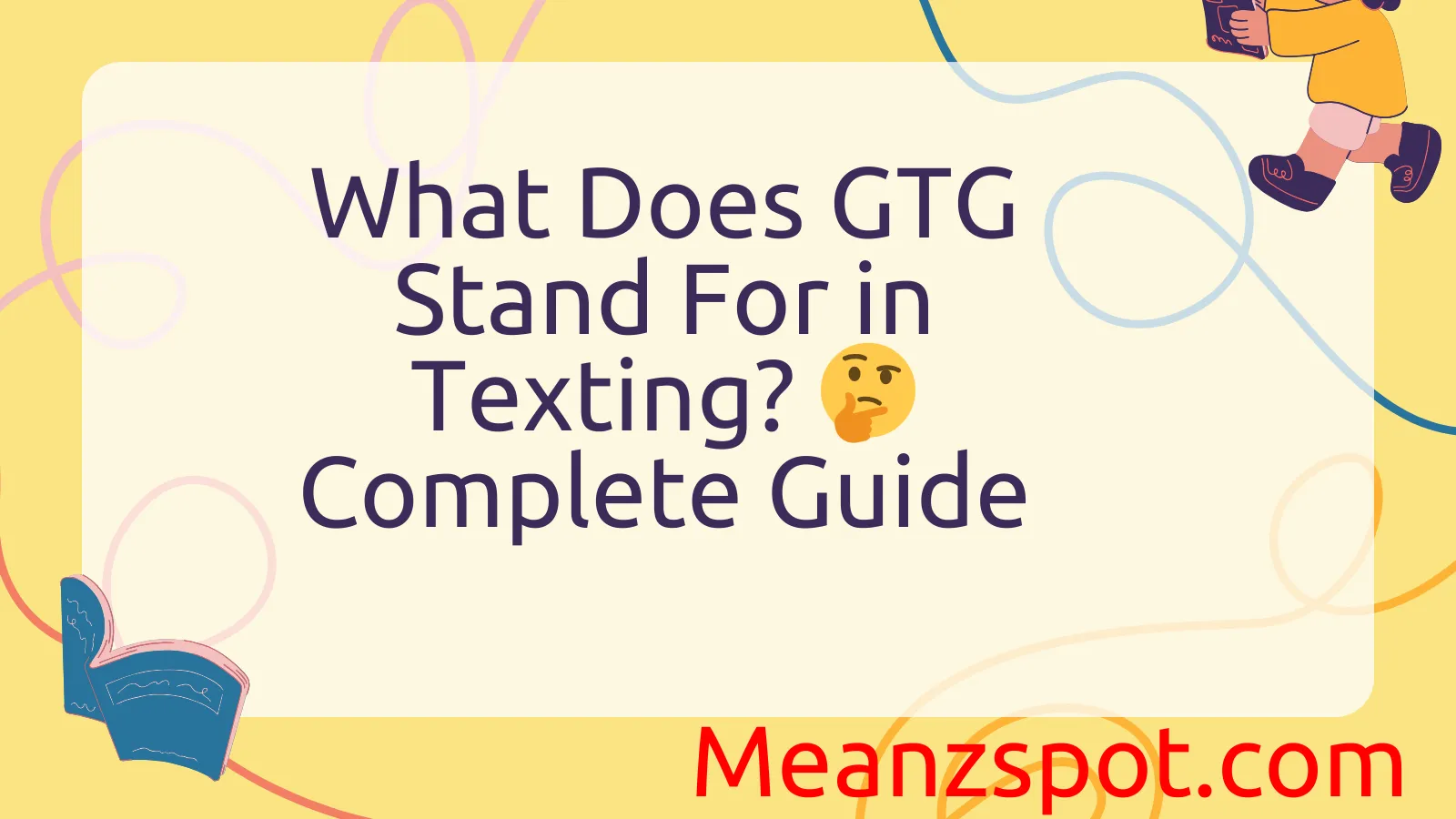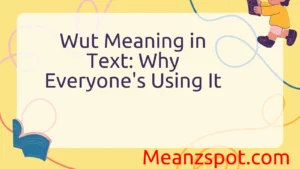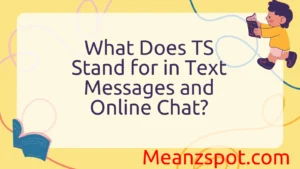In today’s fast-moving digital world, texting slang changes almost daily, and staying updated is key. One abbreviation you’ll see everywhere is GTG. But what does it actually mean? Simply put, GTG stands for “Got To Go”. It’s a quick way to tell someone you need to leave a conversation, log off, or move on to something else. You’ll spot GTG in social media chats, online gaming, and texting apps where speed matters.
While short and simple, its meaning can shift slightly depending on the context—sometimes polite, sometimes rushed, and sometimes playful. Knowing what GTG means in 2025 helps you stay on top of modern slang and keeps your chats smooth and natural.
Definitions & Meaning
GTG is a popular acronym used primarily in texting and online messaging. It stands for “Got To Go.” The phrase is a quick way to indicate that the person needs to leave the conversation or end the interaction promptly. Instead of typing out “I have to leave now,” people simply type “GTG” to save time.
For example, if you’re chatting with a friend and suddenly need to leave, you might say:
“Hey, it was great catching up, but GTG!”
It’s a casual and efficient way to exit a conversation without sounding abrupt or rude. Because “GTG” is short and sweet, it’s commonly used across multiple platforms, from SMS to social media comments, instant messaging apps, and even online gaming chats.
Origins & History
The exact origin of GTG is somewhat hard to pinpoint, but it emerged alongside the rise of text messaging and online chats in the late 1990s and early 2000s. As mobile phones and instant messaging services like AIM, MSN Messenger, and later platforms like WhatsApp became popular, users developed shortcuts to save time and space in conversations.
“GTG” likely started as a natural abbreviation of the phrase “Got to go,” used frequently when conversations needed to end quickly. It became part of a broader culture of text speak or internet slang where speed and brevity mattered.
Since then, “GTG” has persisted and evolved. Despite new messaging features like voice notes and video calls, abbreviations like “GTG” remain popular for their simplicity and convenience.
Usage in Different Contexts
Social Media & Casual Texting
In casual conversations, “GTG” is used to politely indicate you need to leave a chat without providing a detailed explanation. For example, in a group chat with friends, someone might simply type:
“GTG, talk later!”
Professional or Work Communication
While less common in formal settings, “GTG” can still appear in informal workplace chats or quick messaging apps like Slack or Teams. However, professionals often prefer full phrases such as “I have to leave now” or “I need to step out.”
Pop Culture and Gaming
In online gaming or streaming communities, “GTG” is frequently used when players need to quit the game or leave a stream abruptly. It’s an accepted part of gamer lingo, allowing quick communication in fast-paced environments.
Texting Etiquette
Although “GTG” is handy, it’s best used with people familiar with texting acronyms. Using it in formal emails or with people who don’t know the abbreviation might cause confusion.
Common Misunderstandings & Clarifications
Sometimes people confuse GTG with similar acronyms or misinterpret its tone. Here are some common misunderstandings:
- “GTG” vs. “G2G”: Both mean the same thing (“Got To Go”) but the spelling varies. “G2G” uses the number 2 as a shortcut for “to.”
- Not rude or abrupt: Some might think “GTG” is rude because it ends conversations quickly, but it’s generally considered polite and casual.
- Not a permanent goodbye: “GTG” usually means the person will return or continue the conversation later, not that they’re ending communication forever.
By clarifying these points, you can avoid awkward social situations and use the acronym confidently.
Alternatives & Synonyms
If you want to vary your exit phrases or use alternatives to “GTG,” here are some common options:
- BRB (Be Right Back) — implies a short absence but return soon.
- TTYL (Talk To You Later) — a casual way to say you’ll chat again.
- Gotta Run — informal phrase with the same meaning.
- Catch you later — friendly and informal.
- AFK (Away From Keyboard) — mostly used in gaming to signal a temporary break.
- Signing off — more formal, often used in broadcasting or emails.
Using alternatives can keep your texting fresh and suit different contexts better.
Frequently Asked Questions (FAQ)
1. Is GTG informal or formal?
GTG is informal and best suited for casual conversations with friends, family, or close colleagues.
2. Can I use GTG in emails?
It’s not recommended for formal or professional emails. Use full phrases instead.
3. What does G2G mean?
G2G means the same as GTG — “Got To Go” — just with a number replacing “to.”
4. Is GTG considered rude?
No, it’s usually polite and understood as a quick way to end a chat, not rude.
5. How do I respond when someone says GTG?
You can reply with something like “Okay, talk later!” or “No worries, catch you soon!”
6. Can I use GTG in voice messages?
Yes, but it’s more common in text. In voice, people usually say the full phrase.
7. Is GTG used globally?
While common in English-speaking countries, internet slang like GTG is understood widely online.
Conclusion
“GTG” is a simple yet effective acronym that stands for “Got To Go,” used mainly to quickly exit conversations in texting and online messaging. Originating from early internet and texting culture, it has become a \shorthand across social media, casual chats, and gaming. Knowing when and how to use “GTG” helps you communicate efficiently without sounding rude or abrupt. It’s important to keep in mind the context—while perfect for informal chats, it’s less suitable for formal or professional settings.
With plenty of alternatives available, you can choose the best phrase for any situation. Next time you see “GTG,” you’ll know exactly what it means and how to respond—making your digital conversations smoother and more connected



